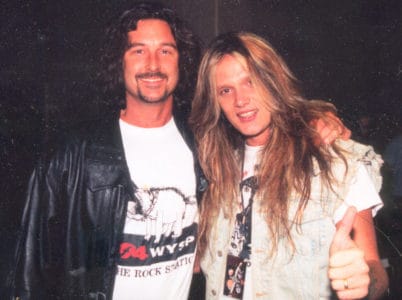 Not so long ago, small business was at the mercy of Newspaper, TV & Radio. If you needed to advertise your Italian restaurant or car dealership, you had to call the big media players in town. Often, they played the role of Tony Soprano (or Nucky Thompson if you watch Boardwalk Empire on HBO). They were in the driver’s seat and it was their way or the highway. But that’s no longer true today.
Not so long ago, small business was at the mercy of Newspaper, TV & Radio. If you needed to advertise your Italian restaurant or car dealership, you had to call the big media players in town. Often, they played the role of Tony Soprano (or Nucky Thompson if you watch Boardwalk Empire on HBO). They were in the driver’s seat and it was their way or the highway. But that’s no longer true today.
Local marketing budgets are in flux. They’re up for grabs as the Internet enables and empowers every mom and pop in town. Yes, as my mentor told me…’the deer now have guns’.
Thanks to cheap and simple digital platforms, along with a growing army of online-only companies, SMBs (small & mid size business) are no longer trapped. No longer must they endure overly confident radio reps or cranky newspaper ad directors who are counting down to their retirement and pension. Small biz can now take low-risk chances and move larger chunks of their ad dollars to new digital solutions arriving on the scene.
Consider the facts. Consumers now get over 50% of their media from online sources. Compare this to the fact that local business still only allocates 4% of their marketing budgets to online. Imagine when local biz wakes up to this disparity. This impending tsunami of local marketing dollars to digital is why Google and others are making big bets in the local space.
TV, Radio & Newspaper losing kung-fu grip on advertisers? The short answer is yes. The longer answer is ‘yes but so what, they still make an awful lot of money’. Thanks to typical Q4 spikes and better than average political dollars, these types of short-term windfalls obscure the growing cracks in traditional media’s revenue foundation. It also blinds management to the growing success of digital outsiders like Google sucking bigger ad dollars out of their market.
Here’s a look at some recent local-media disruptions, affecting all local media outlets:
1. David and Goliath in Philly. Journal Register Company (JRC) recently fired a shot across the bow of every Philadelphia news organization. CEO; John Paton, announced his intention of launching a digital-first service for the nation’s 4th largest market. Paton’s plan calls for leveraging JRC’s suburban Philly newsrooms and sellers, with increased use of ‘cloud’ production. Paton will also look for some divine intervention in tapping a fiercely independent group of hyper-local content creators.
The JRC plan is a direct assault on dominant Philly news orgs like The Philadelphia Inquirer, CBS, Fox, NBC and KYW News Radio. It also kicks sand in the face of other market competitors like Gannett and Calkins Media.
While all of these companies have competence in the interactive space, traditional management still plays a far too dominant and protective role in strategic digital decisions & resource allocation. I imagine an uncomfortable meeting where NBC corporate asks their local Philly management team: “why did we allow a former bankrupt company (JRC), take the lead in the Philly hyper-local news race? (sounds funny but could be true)
2. Hyper-local advertising and content. Speaking of my home base of Atlantic City, the hyper-local eco-system here features sites of every make and model.
- ACprimetime.com
- DownbeachBUZZ.com
- BrigantineNOW.com
3. Dump your expensive CMS vendor. Go WordPress! In a rare moment of brilliance, the CBS broadcast division has started to dump some of its pricey and stale, interactive vendor tools. They’re moving to WordPress as a CMS; content management system. (although we think CBS blew it by combining all of their excellent brands – The Fan, 1010Wins, 610WIP, KYW1060, under the consumer un-friendly url’s of CBSPhilly.com & CBSNewYork.com)
This big media move to WordPress should be a wake-up call to all companies stuck in crappy and outdated vendor contracts. It’s a fact. Open source platforms like WP are better and easier to use than ever. WordPress; an open source publishing platform, has humble beginnings as a simple yet effective blogging tool. Today, WordPress is also the leading CMS that handles everything from easy creation and upkeep of Newspaper sites, to helping TV Networks with a series of specialty blogs.
Some web development & digital VPs snobbishly look down their nose at WP. Understandably they’re fearful of implementing an in-expensive, yet robust and user-friendly platform where it would likely affect their employment and pay status. Nonetheless, watch for others to dump a few vendors and adopt WordPress and other free digital tools. Why not reduce interactive hard costs while increasing ease of use, functionality and consumer value?
4. Tribune and 435 Digital. It’s true. I’m still bitter over not being invited to those smoky poker games inside the Trib Tower. But before his exit, Randy Michaels was a big supporter of their 435 Digital division and we gotta love him for that. Imagine a newspaper & broadcast company getting in front of local advertisers…and NOT forcing them to buy print ads and broadcast spots. Instead, clients are given the option of digital solutions like social media management, web development and search engine optimization. This activity suggests some old school media finally willing to offer….what local advertisers increasingly want to buy.
Why do local media managers ignore or mis-play the new digital competition? Well, if your compensation is primarily tied to spot and print dollars, as well as archaic rating systems and circulation audits, what would you do?
But don’t place all the blame on middle management. It’s the broadcast/newspaper CEO’s and investor groups that are in charge here. They set the tone. Instead of stepping up and immersing themselves in the business of digital, they sheepishly delegate all that icky web stuff to the company web geek…
Translation: ‘we hired some heavy hitter who worked at a dot com. He was recommended by someone who used to build streaming websites and tweaked code as a teen. Sure, this guy with the prestigious resume is burning through a lot of our cash, but our sites look cool, traffic is building, and we win digital awards all the time. He swears profitability is right around the corner.’


Yes, I faced web development & digital VPs snobbishly looking down their nose at WP as a CMS system for a large-scale newspaper system, but (and I did it before CBS did it) it was a brilliant move. In fact, I faced major news-related third party suppliers who had no idea how to integrate into a WP set-up because no one had done so beforehand.
We worked it out. Our weekly now competes online with the daily.
Just wanted to give myself some credit. But also, to agree with the point made, and promise that it works, and that it is that kind of forward thinking that will be the only thing to keep traditional local media afloat.